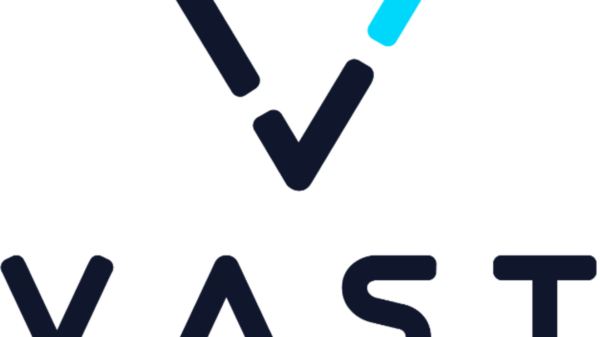The debate surrounding the regulation of AI in mental health is heating up, with various perspectives emerging among policymakers and stakeholders. As AI technologies, particularly generative AI and large language models (LLMs), continue to proliferate, the conversation shifts towards how to govern their use responsibly while maximizing their benefits.
At the forefront of this discussion are three primary regulatory positions: the **highly restrictive**, the **highly permissive**, and the **dual-objective moderation** approaches. Each of these perspectives reflects differing beliefs on the role that legislation should play in the integration of AI into mental health practices.
Understanding the Perspectives on AI Regulation
One viewpoint advocates for tight controls over AI applications in mental health, arguing that such technologies should be banned or severely limited to prevent potential harm. Proponents of this approach emphasize the risks associated with AI advising on mental health matters, pointing to instances where AI could inadvertently provide harmful or misleading recommendations.
Conversely, the **highly permissive** stance encourages minimal restrictions, allowing the marketplace to dictate the boundaries of AI use in mental health. Supporters believe this could lead to rapid innovation and accessibility, thereby helping more individuals in need of mental health support.
The **dual-objective moderation** approach seeks a balance between these two extremes. Advocates of this position argue for reasonable restrictions while simultaneously fostering healthy development in AI mental health applications. This perspective suggests that regulations should provide necessary safeguards without stifling innovation.
Implications of Current Legislation
As of now, various states in the U.S. have begun enacting laws regarding AI in mental health, but these laws are often fragmented and lack comprehensive coverage. Recent legislation in states like Illinois, Nevada, and Utah has set the stage, yet significant gaps remain. The lack of a cohesive federal framework heightens concerns about a conflicting patchwork of state laws that could confuse both AI developers and consumers.
For instance, Illinois has taken steps to regulate AI applications in mental health, but the adequacy of these measures is still under scrutiny. The absence of a clear federal law means that states may choose to implement their own policies, leading to a scenario where one state may impose strict regulations while a neighboring state adopts a more liberal approach.
Framework for Future Policies
To navigate this complex landscape, a comprehensive framework is essential for policymakers to consider. This includes twelve distinct categories that encompass crucial areas such as:
- Scope of Regulated Activities
- Licensing, Supervision, and Professional Accountability
- Safety, Efficacy, and Validation Requirements
- Data Privacy and Confidentiality Protections
- Transparency and Disclosure Requirements
- Crisis Response and Emergency Protocols
- Prohibitions and Restricted Practices
- Consumer Protection and Misrepresentation
- Equity, Bias, and Fair Treatment
- Intellectual Property, Data Rights, and Model Ownership
- Cross-State and Interstate Practice
- Enforcement, Compliance, and Audits
Each of these categories should inform the regulatory approach taken by lawmakers, to ensure a comprehensive and effective framework is developed.
The Future of AI in Mental Health Regulation
The path ahead will likely see states weaving together a mix of restrictive and permissive policies. As lawsuits against AI developers, such as the recent case involving OpenAI, highlight the risks associated with insufficient safeguards, there may be a tendency for lawmakers to lean towards more stringent regulations.
If successful case studies emerge demonstrating the positive impacts of AI on mental health, public and legislative sentiment could shift towards a more permissive environment. However, until then, the governance of AI in mental health remains a crucial area of ongoing debate, directly impacting the future of mental health care.
As Oliver Wendell Holmes, Jr. once noted, “The life of the law has not been logic; it has been experience.” The laws governing AI in mental health will ultimately reflect the experiences and considerations of the policymakers involved as they strive to shape a future that balances innovation with safety.
 University of International Business and Economics Launches AI and Data Science School to Meet National Goals
University of International Business and Economics Launches AI and Data Science School to Meet National Goals Brussels Eases AI Regulations Amid Trump’s Push for Tech Industry Support
Brussels Eases AI Regulations Amid Trump’s Push for Tech Industry Support Data Discipline Crisis: 63% of AI Leaders Cite Poor Data Quality as Top Barrier
Data Discipline Crisis: 63% of AI Leaders Cite Poor Data Quality as Top Barrier Scott Wiener Launches California’s SB 53 AI Regulation, Aiming for Federal Standards
Scott Wiener Launches California’s SB 53 AI Regulation, Aiming for Federal Standards Italy Passes Landmark AI Law Aligning with EU Act, Boosting Demand for Employment Lawyers
Italy Passes Landmark AI Law Aligning with EU Act, Boosting Demand for Employment Lawyers


































































